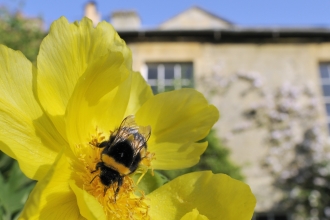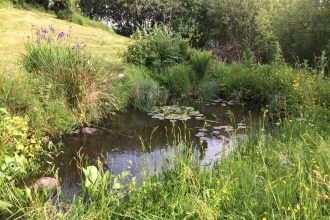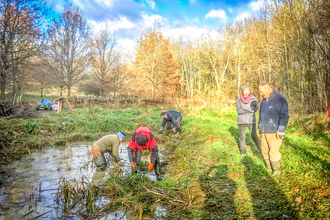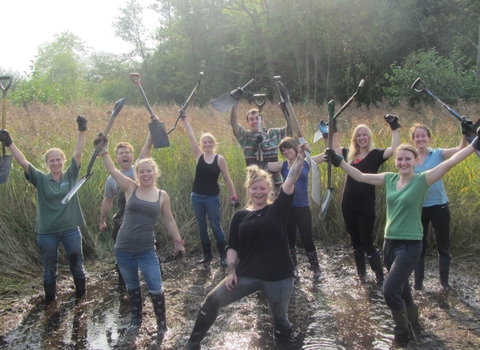
Team Wilder Story: Creating a village for owls
A view towards the village of East Hagbourne in Oxfordshire from the nearby Sustrans cycle track. Picture: Kieron Humphrey

Imagine a wilder world on your doorstep, with more nature everywhere in urban and rural areas. That's what the residents of three Oxfordshire villages did - then they started making it a reality, and became part of Team Wilder.
In the coronavirus lockdown of summer 2020, residents in three South Oxfordshire villages all started to come to the same realisation: once the pandemic was over, they didn't want to carry on living in the same way.
With media coverage of the climate and nature crises revealing the scale of the problem as never before, the neighbours in East Hagbourne, West Hagbourne and Upton all agreed that they wanted to do their bit to tackle the crises in their own back yard.
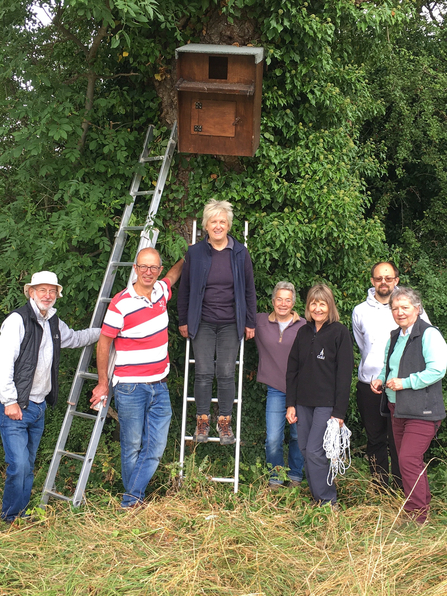
Members of the Hagbournes and Upton Group for Sustainability (HUGS) putting up an owl nest box. Left-to-right: David Rickeard, Crispin Topping, Lu Barton, Kay Hardie, Felicity Topping, Richard Kimber and Cynthia Napper. Picture: Caroline Hunt
The villages already had the Hagbourne Environment Group which, over 30 years, had managed a wildflower meadow and local woodland and scrub areas - but now residents wanted to do more to show their love for the environment, so they formed the Hagbournes and Upton Group for Sustainability - HUGS.
Members quickly started identifying local opportunities: they agreed to start managing a local footpath loop for wildlife, surveying the hedgerow species and planting new hedging plants to bolster the habitat which can provide a home to small mammals like mice, voles and rabbits, as well as nesting ground for songbirds and flowers for thousands of pollinators.
The group also developed a walk route linking all three villages, to promote time spent in nature, and created four seasonal guides for the route, highlighting what walkers can look out for at each time of year.
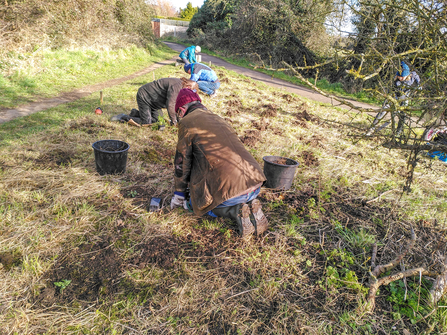
Members of the Hagbournes and Upton Group for Sustainability (HUGS) planting a 'mini meadow'. Picture: Caroline Hunt
Then they upped their game: they started working with a local nursery to supply villagers with native tree and hedge saplings to plant in their gardens or fields. In two years, more than 700 plants have been ordered and planted. All of the plants are 'bare root whips' - saplings grown in the ground outdoors, not in plastic tubs. As well as improving diversity and creating habitat, the planting also aims to help remove carbon from the air.
But perhaps the most unique challenge that the HUGS team took on was their owl project.
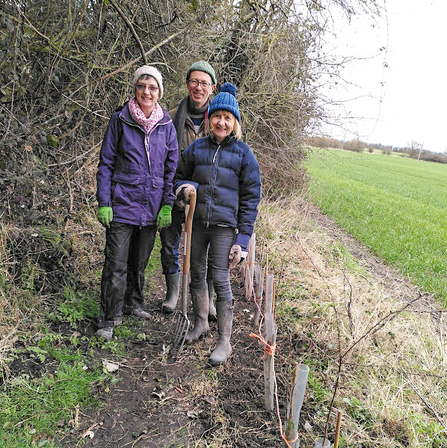
Members of the Hagbournes and Upton Group for Sustainability (HUGS) planting hedgerow plants. Picture: Caroline Hunt
In February 2021, the group secured a £2,700 grant from South Oxfordshire District Council for a project to help local owls.
Residents already knew that they were lucky enough to have tawny, little and barn owls living in the area, but like so many species, they were losing habitat and hunting ground to local housing development.
Using the funding, the group bought and put up 23 nest boxes for the three owl species. They also bought a host of wildflower plugs and seeds, trees and hedging plants, which they planted in the autumn and winter. The team also promoted a wildlife garden competition across the three villages to boost interest in the topic and help improve the villages for wildlife. They even organised a Facebook Live talk from Didcot owl expert Lu Barton, which inspired many locals to listen out for owls calling in their area. This in turn helped the HUGS group to get a better idea of what owls were living where.
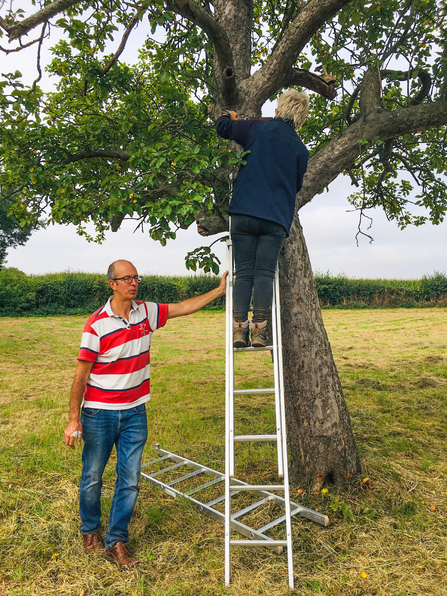
Crispin Topping and Lu Barton of the Hagbournes and Upton Group for Sustainability (HUGS) putting up an owl nest box. Picture: Caroline Hunt
As well as these headline projects, the HUGS group also organised work parties such as raking the local wildflower meadow last summer. They also have a website where they regularly share updates and environmental information, as well as a monthly parish newsletter with subjects including how to compost garden waste after a local stoppage in council garden waste collection, and the COP26 climate conference.
For their next project, the team are now starting to look at roadside verges across the area, in the hopes of helping parish councils cut down on strimming and increasing numbers of wild flowers.
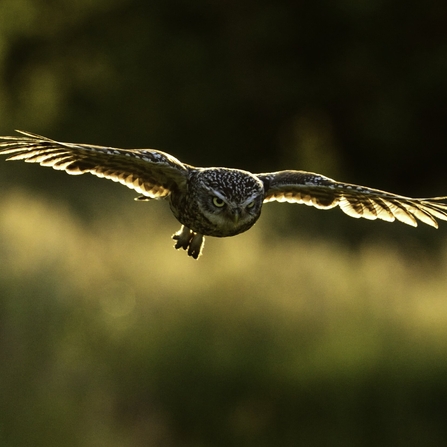
Little owl © Andy Rouse/2020VISION
Caroline Hunt, one of HUGS' founder members, said she was proud of everything the group had accomplished, but also admitted it had not been easy.
She said: "The pandemic has meant we couldn’t hold face-to-face meetings or bring villages together in person. We’ve had to work in small numbers and use our website and village newsletters to get messages out.
"We are also looking at the juxtaposition of the need for people to keep the environment neat and tidy versus the urgent need to support nature. There are no easy lessons here, just time and better communication."
However, she also had a message for anyone wanting to try something similar: "You’re not alone - work with other groups with shared interests: Oxfordshire is lucky to have such fantastic resources as BBOWT and Wild Oxfordshire and ToE – make the most of them."
The HUGS group is a fantastic example of Team Wilder: ordinary people taking action for nature, no matter how small. If you are doing anything for wildlife in your area, we want to know about it - find out more here.
Find out more about our community projects
Stay up-to-date with our work
Sign up below to receive the latest news from BBOWT, tips about how you can help wildlife, plus information on how you can get involved.


